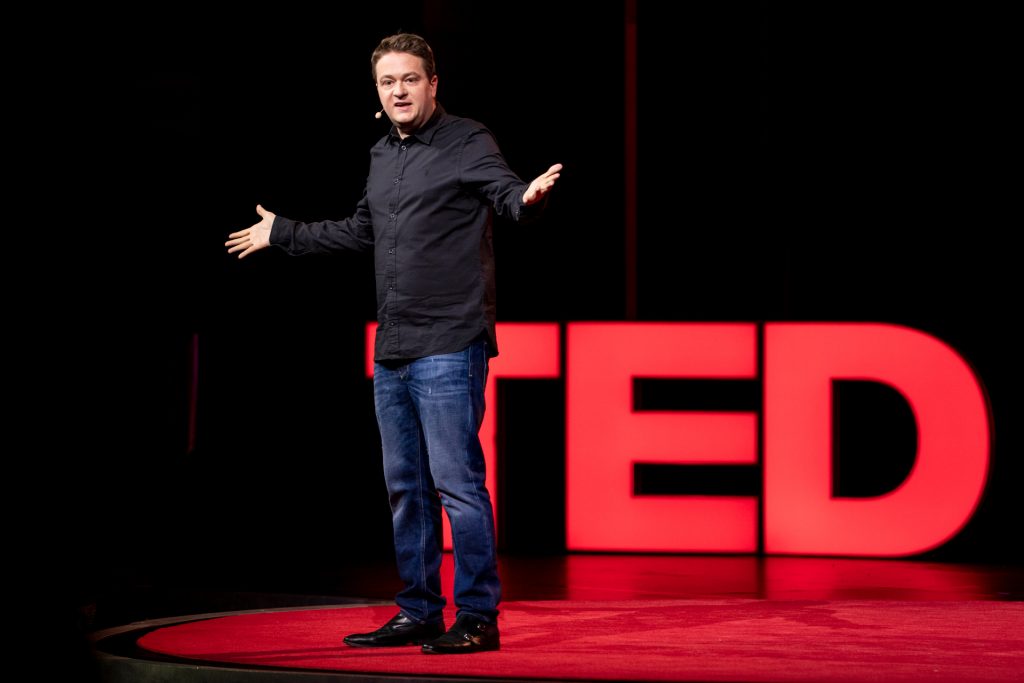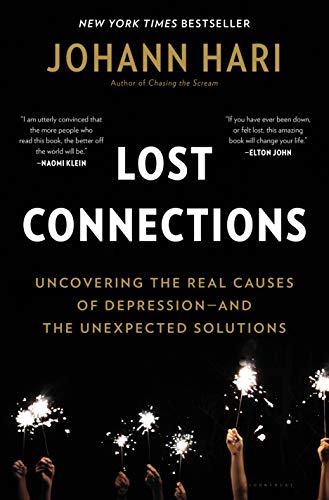*****
WTR (What’s Toby Reading)? provides unsolicited and unsponsored (I don’t get paid) opinions of books I have recently finished.
*****
My wife saw Johann Hari’s Ted Talk during a graduate school class and immediately ordered his book about antidepressants. When the book entitled, Lost Connections: Uncovering the Real Causes of Depression – and the Unexpected Solutions, arrived I quipped at her, “Hon, are you okay?”
I could joke about such a heavy topic because my wife is the most genuinely carefree person you’ll ever know. If she’s ever stressed out, I’ve never seen it. I’m the opposite – full of worry, regret and, on most days, a glass is half empty type.

She appropriately shot back at me, “I can’t wait to read that, actually. You should be the one reading it though! For real.” She wasn’t joking.
So, I did.
The Serotonin Myth
Lost Confessions is bed rocked by the premise that people with depression are too often prescribed anti-depressant medications (Xanax, Prozac, Paxil, etc.) while being told that their blues result from an imbalance in their brains.
The imbalance often refers to the hormone, serotonin, which is thought to be responsible for a person’s well-being. Antidepressants, patients are told, restore the proper balance. The only catch is, at least according to Johann Hari, they don’t work.
Diving deep in studies that show little difference between placebo groups and those people taking the active antidepressant while looking at well-funded pharma’s selective publication of skewed trials, Hari dispels the serotonin theory completely.
To Hari, depression is less about a broken brain than it is about disconnection. In the book cites nine disconnections to:
- Meaningful Work
- Other People
- Meaningful Values
- Childhood Trauma
- Status and Respect
- Natural World
- Hopeful or Secure Future
- Roles of Genes and Brain Changes
Through my early forty’s, I can identify with several of these thought I do not consider myself depressed. Hari certainly hit home speaking about being constantly connected, yet more disconnected than ever.
“It made me realize: we haven’t just stared doing things alone more, in every decade since the 1930s. We have started to believe that doing things alone is the natural state of human beings, the only way to advance…Nobody can help you but you. Nobody can help me but me. These ideas now run so deep in our culture that we even offer them as feel-good bromides to people who feel down – as if it will lift them up.
It is possible to be surrounded by loved ones and be lonely. It happens. And, as we age, time for friendships become even more fleeting. Hell, I will always make time to get my sons to soccer, but rarely have lunch with a friend when asked. Depressed or not, that is messed up.
Hari’s book certainly had me consciously self-reflecting about the relationships (or lack thereof) in my life.
Reconnecting without drugs
Once Hari has establishes that an unbalanced brain is not solely responsible for depression and, therefore, cannot be automatically fixed through medications, he begins to lay out a case for reconnecting to others as the way out.
I won’t spoil Johann Hari’s formula for recovering from depression via non-medical means, but I will tell you that most of his ideas center on locating, cherishing, and fostering relationships in your personal sphere. Said differently: finding your “tribe”.
Whether reading Hari chronical the power of cohesive groups to make communal change through empowerment, his research of Native American reservation life, detailing a coop-run bike shop in Baltimore, or an interview with an eighteen year-old Amish man about his return to a life of subsistence; there are clearly social factors that can support his theory of healing without taking pills.
Wrapping Up
As I closed Lost Connections, I thought of a tank top a friend bought during a trip with multiple families a few years ago. The tank top hung above our table at dinner, catching her eye. I can’t remember the color of the tank, but I distinctly recall the saying that drew her to it to pay the exaggerated, touristy price. It read, “Your tribe creates your vibe.”
That phrase stuck with me. So will Johann Hari’s book – the one I my wife thought I should read.
Man, I hate when she’s right!
